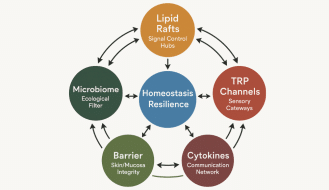Making Babies: How Omega-3 Promotes Better Sperm
Last weekend, I attended a wedding. After the ceremony, I happened to talk with a specialist at a large fertility clinic in Oslo, Norway. She had heard about my expertise in the area of omega-3 fish oil, and of course, I took the opportunity to extol the virtues of docosahexaenoic acid (DHA) in terms of increased sperm quality.
Just last month a report came out from the Urology Research Center of the University Hospital in Tehran, Iran, analyzing the omega-3/omega-6 status of fertile and infertile men. There were more than eighty men in both groups, and the researchers found that there was a significantly lower level of omega-3 fatty acids (including DHA and EPA) in infertile men.1
Clearly, changes in the omega-3 levels likely drive the morphology and function of sperm.
Arand Pierce, in the article “Why is Intelligence Correlated with Semen Quality?” takes this one step farther and discusses why polyunsaturated fatty acids DHA and arachidonic acid (AA) provide a common biochemical pathway for both sperm and neuron function. In other words, intelligence and sperm quality are correlated because DHA levels influence both.
Both in sperm and in neurons, the DHA molecule’s flexibility allows the cell membrane to function more efficiently, making signals travel more quickly and easily from neuron to neuron and from sperm to egg. Biochemically, the fertilization process is sort of a “synaptic communication between gametes [baby making cells] or – it could also be argued – synaptic communication is the way neurons impregnate each other with information.”2
It makes sense that basic cellular biochemistry would be the same across different organs’ tissues and cell types. Interestingly, it is the inter-related biochemistry of polyunsaturated fatty acids that is important not only in fertility but also in brain function – for parents and their developing babies. Using Omega Cure or eating Omega Cookies is a wonderful way to keep sperm wiggling happily on a baby-making adventure.
Sources:
1. Clinical Nutrition: “Relationship of omega-3 and omega-6 fatty acids with semen characteristics, and anti-oxidant status of seminal plasma: A comparison between fertile and infertile men.” 27 July 2009.
2. Communicative and Integrative Biology: “Why is intelligence correlated with semen quality? Biochemical pathways common to sperm and neuron function, and their vulnerability to pleiotropic mutations.” September/October 2009.
Popular posts



Related posts






